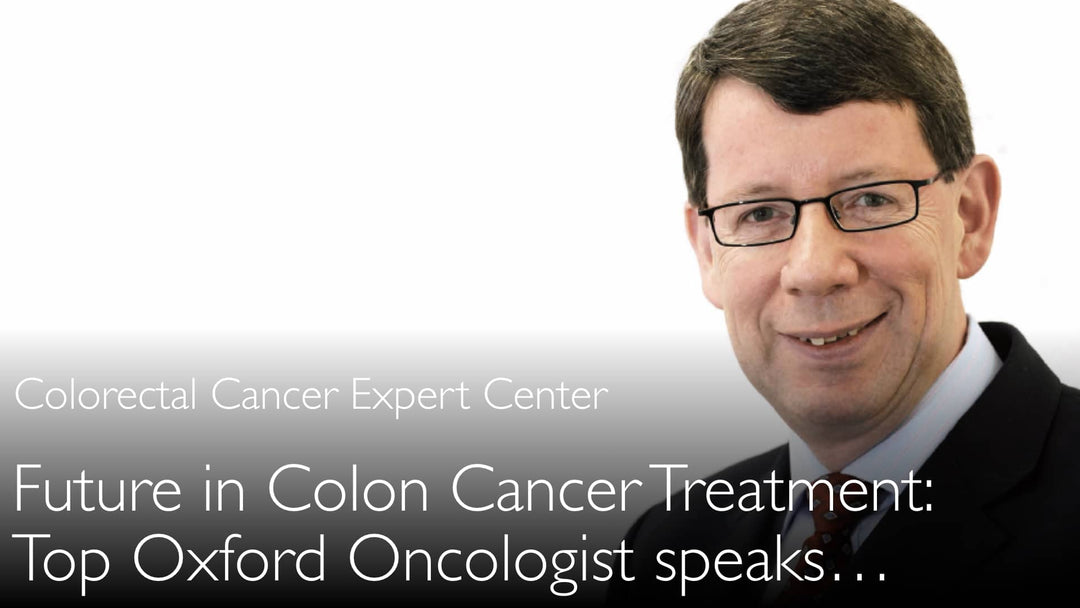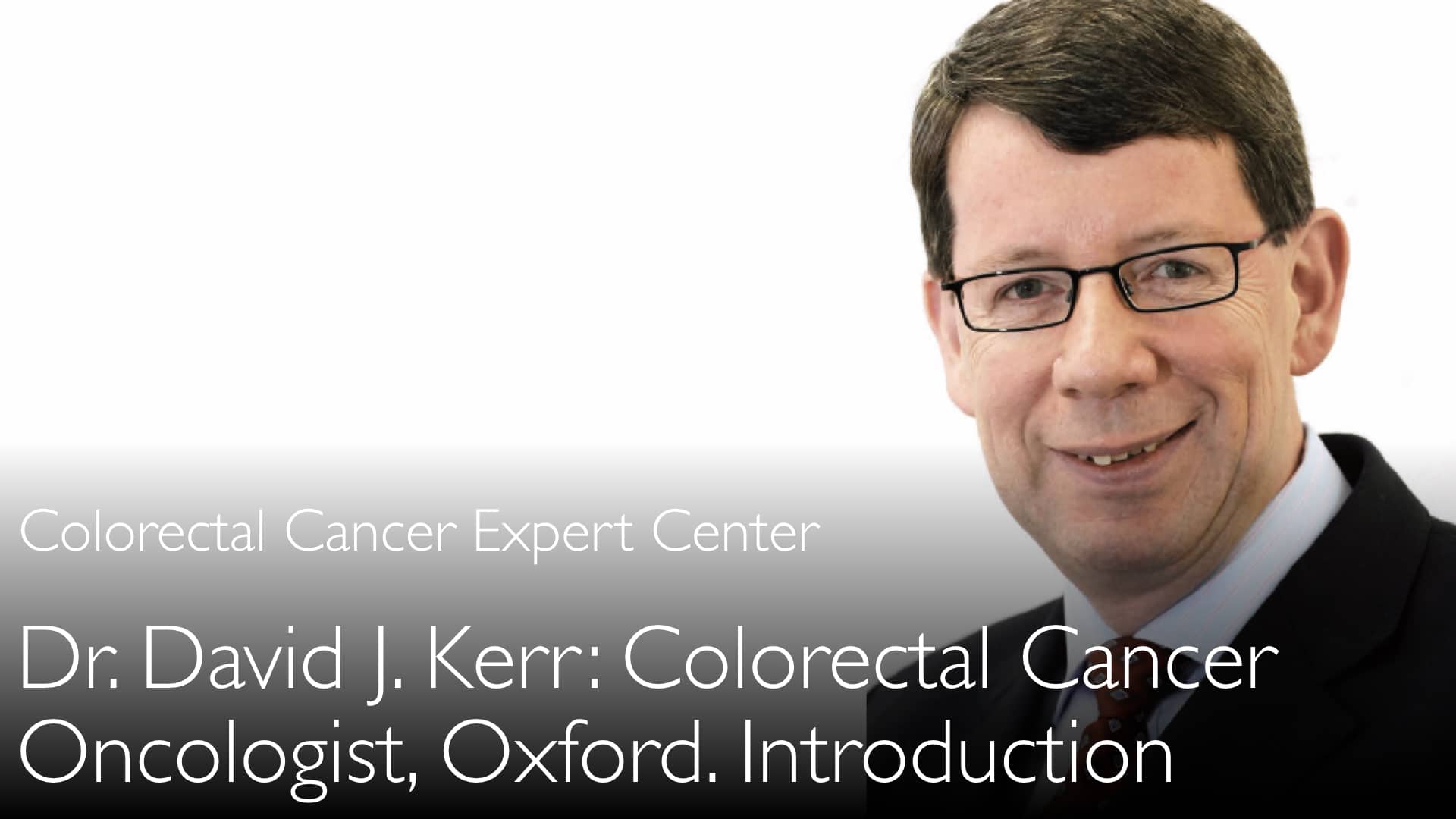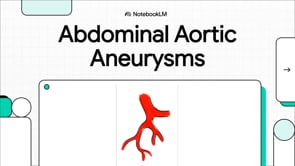מומחה מוביל בסרטן המעי הגס, ד"ר דייוויד קר, MD, מסביר כיצד עתיד הטיפול בסרטן המעי הגס תלוי באימוץ נרחב יותר של סמנים פרוגנוסטיים מולקולריים, בבחירת מטופלים טובה יותר לכימותרפיה, ובפיתוח תרופות חדשות המכוונות למסלולים כמו איתות WNT. הוא מדגיש את התפקיד הקריטי של גישה צוותית רב-תחומית לקבלת החלטות אבחנתיות מתקדמות ולטיפול אגרסיבי במחלה גרורתית באמצעות ניתוח והקאה, תוך הדגשת האתגרים הנוכחיים של עמידות הגידול לאימונותרפיה והצורך הדחוף בתרופות טיפוליות חדשות.
עתיד הטיפול בסרטן המעי הגס והחלחולת: רפואה מותאמת אישית וטיפולים חדשים
קפיצה לסעיף
- סמנים פרוגנוסטיים מולקולריים בסרטן המעי הגס והחלחולת
- אתגרי האימונותרפיה בסרטן המעי הגס
- נתיבים תרופתיים חדשים: מסלול WNT ואפיגנטיקה
- ייעול כימותרפיה ותרופות קיימות
- טכניקות הדמיה מתקדמות לאבחון
- גישה רב-מקצועית לטיפול
- אופק הטיפול ב-5 עד 10 השנים הבאות
סמנים פרוגנוסטיים מולקולריים בסרטן המעי הגס והחלחולת
הרפואה המותאמת אישית בסרטן המעי הגס והחלחולת מתקדמת באמצעות אימוץ נרחב יותר של סמנים פרוגנוסטיים מולקולריים. ד"ר דייוויד קר, MD, מציין כי פרופיל גנומי של גידולים יהפוך לסטנדרט בקליניקה. סמנים אלה חיוניים לבחירת מטופלים טובה יותר, במיוחד עבור כימותרפיה אדג'ובנטית בסרטן המעי הגס והחלחולת.
גישה זו משתמשת בביולוגיה מולקולרית חכמה כדי להתאים תרופות כימותרפיות קיימות למטופלים עבורם הן יעבדו בצורה הטובה ביותר. שילוב המודלים המתקדמים הללו הוא מגמה מרכזית בהתאמה אישית של טיפול בסרטן המעי הגס ובשיפור התוצאות.
אתגרי האימונותרפיה בסרטן המעי הגס
סרטן המעי הגס והחלחולת מהווה אתגר טיפולי עבור אפנון נקודות בקרה חיסונית. ד"ר דייוויד קר, MD, מסביר כי בעוד שאנשים מתרגשים מאימונותרפיה עבור סרטנים כמו מלנומה וסרטן ריאות, היא פועלת רק על תת-קבוצה קטנה של גידולי מעי גס וחלחולת. רוב גידולי סרטן המעי הגס מתחמקים ממערכת החיסון ועמידים לצורת טיפול זו.
עמידות זו הופכת את סרטן המעי הגס והחלחולת למצב קשה לפתרון ומדגישה את הצורך המיידי בתרופות חדשות שיוכלו להתגבר על מכשול ביולוגי זה.
נתיבים תרופתיים חדשים: מסלול WNT ואפיגנטיקה
מועמדים לתרופות חדשות הפועלות על מסלולים מולקולריים ספציפיים מייצגים התקדמות משמעותית עתידית. ד"ר דייוויד קר, MD, מדגיש מחקר מבטיח into מסלול האיתות WNT ואנזימים המעורבים בבקרה אפיגנטית של גידולים. הוא צופה כי בתוך חמש השנים הבאות נראה תרופות חדשות שפותחו כדי לתקוף מנגנונים אלה.
מחקר זה into הביולוגיה הבסיסית של סרטן המעי הגס והחלחולת旨在 לספק מטרות חדשות לטיפול ולסייע במניעת הישנות הסרטן through הבנה טובה יותר של מיקרו-סביבת הגידול.
ייעול כימותרפיה ותרופות קיימות
לימוד תרגילים חדשים לתרופות ישנות הוא אסטרטגיה valuable לשיפור הטיפול בסרטן המעי הגס. ד"ר דייוויד קר, MD, מצביע על הפוטנציאל של שימוש באספירין together with סמנים מולקולריים כבעל פוטנציאל טוב. מושג זה involves שימוש אינטליגנטי יותר בכימותרפיה קונבנציונלית, supported by סמני גידול מולקולריים.
המטרה היא למקסם את היעילות של טיפולים קיימים while החיפוש after תרופות novel ממשיך, כדי להבטיח that מטופלים יקבלו את הרפואה המותאמת אישית היעילה ביותר available now.
טכניקות הדמיה מתקדמות לאבחון
הדמיה טובה יותר היא critical לטיפול אגרסיבי בסרטן מעי גס וחלחולת גרורתי. ד"ר דייוויד קר, MD, מציין that נשתמש more ב-PET-CT כדי to stage disease accurately ולנטר response. הדמיה מתקדמת זו supports procedures פולשניות more like radiofrequency ablation וניתוחים for metastases by enabling בחירת מטופלים טובה יותר.
טכניקות radiotheraphy משופרות also allow for delivery to precise tumor fields more safely, though ד"ר קר considers this a marginal source of benefits compared to advances אחרים.
גישה רב-מקצועית לטיפול
גישה רב-מקצועית היא paramount לקבלת החלטות אבחון וטיפול אופטימליות. ד"ר דייוויד קר, MD, emphasizes that setting צוותי זה הוא most important for managing מקרים מורכבים of סרטן מעי גס וחלחולת גרורתי. It brings together oncologists כירורגיים, רפואיים ו-radiation with experts אבחוניים כדי to create a comprehensive treatment plan.
מודל collaborative זה ensures that בחירת מטופלים for טיפולים אגרסיביים היא thorough and that care is coordinated, which is a cornerstone of the best מרכזי טיפול בסרטן המעי הגס והחלחולת.
אופק הטיפול ב-5 עד 10 השנים הבאות
עתיד הטיפול בסרטן המעי הגס והחלחולת על פני אופק של 5 עד 10 שנים involves combination of biological discovery and clinical application. ד"ר דייוויד קר, MD, discusses the evolution of treatment, noting that while there have been few new medications in the last decade, the field is poised for change. The main challenges remain overcoming therapeutic resistance and developing effective new agents.
ד"ר אנטון טיטוב, MD, concludes that this important work will require extensive international cooperation, impacting not only downstream discoveries but also upstream factors of health policy and cancer care organization for patients worldwide.
תמליל מלא
ד"ר אנטון טיטוב, MD: מהו העתיד בטיפול בסרטן המעי הגס והחלחולת? יש כל כך many advances. There is targeted colon cancer therapy, colon cancer diagnostics, and precision medicine.
ד"ר אנטון טיטוב, MD: How do we see colon cancer treatment evolve in the next several years? Maybe on a 5- to 10-year horizon. What are the main challenges for colon cancer therapy and rectal cancer treatment? Where will most advances be in treatment of colorectal cancer patients?
ד"ר דייוויד קר, MD: Colorectal cancer has proven therapeutically challenging. Sometimes we look at adjuvant chemotherapy for colorectal cancer. There were no new colon cancer treatment medications in the last 10 or 12 years. The majority of colorectal cancer tumors are resistant to tumor modulation. Colon cancer is resistant to immunotherapy.
People are excited about immune therapy for lung cancer, melanoma, and renal cancer. Immune checkpoint modulation medications work in those cancers. But immune modulation works maybe on a small subset of colorectal cancer tumors. Most colon cancer tumors are immune-evasive. Colorectal cancer treatment is a difficult situation to resolve.
We will see more sophisticated modeling of prognostic molecular markers for colorectal cancer. We discussed genomic profiling of colon cancer tumors. We will see wider adoption of molecular prognostic markers in colorectal cancer.
We will use molecular tumor markers in selecting patients for adjuvant chemotherapy of colon cancer and rectal cancer.
There are interesting molecular pathways in colorectal cancer tumors. WNT signaling and enzymes involved in epigenetic control of colon cancer tumors. We will see in next five years new medication candidates that act on these molecular pathways in colorectal tumors.
There are colon cancer treatment opportunities in "teaching old medications new tricks". Aspirin use with molecular markers in colon cancer treatment has good potential.
We will see more use of molecular tumor markers in conventional chemotherapy of colon cancer. We will use clever molecular biology. It will match existing chemotherapy medications with colon cancer patients for whom chemotherapy treatments would work best.
We will see better imaging of colorectal cancer tumors. We will use PET-CT more. We now treat metastatic colorectal cancer much more aggressively in a multidisciplinary team setting. We use radiofrequency ablation and surgery to treat metastatic colorectal cancer.
I think we need to better select patients for these very invasive procedures to treat colon cancer. We will see better use of diagnostic imaging and molecular markers.
We will support colon cancer treatment decisions better. Radiotherapy of colon cancer has improved. It is not a very large improvement. We can deliver radiotherapy to precise colon cancer tumor fields. We use radiation therapy more safely to treat colorectal cancer. It is a marginal source of benefits now. We will see more improvement in radiation therapy for colon cancer.
ד"ר אנטון טיטוב, MD: Better understanding of the biology of colorectal cancer will bring new targets for medications to treat colorectal cancer. Better understanding of the microenvironment of colon cancer tumor will help in prevention of cancer recurrence.
ד"ר דייוויד קר, MD: Multidisciplinary approach is most important for better diagnostic decisions and patient selection for treatment of colorectal cancer. But we desperately need new medications to treat colorectal cancer. Now I do not see new medications on the horizon at all.
ד"ר אנטון טיטוב, MD: It is very important work in colorectal cancer. It will require a lot of international cooperation too. Thank you very much for this very stimulating discussion about colon cancer treatment. It's very exciting research that you are doing together with your international colleagues.
Your work in public health aspects of cancer treatment is especially important. Because colon cancer therapy success depends not only on "downstream" discoveries to treat colon cancer. It also depends on "upstream" factors of health policy and cancer care organization. This is important for all colorectal cancer patients around the world.
Thank you very much for this conversation. Hopefully we will be able to return to you in the future!
ד"ר דייוויד קר, MD: Thanks again! Colorectal cancer best treatment options will include precise tumor profiling and selection of chemotherapy based on tumor mutations. Multidisciplinary team.






